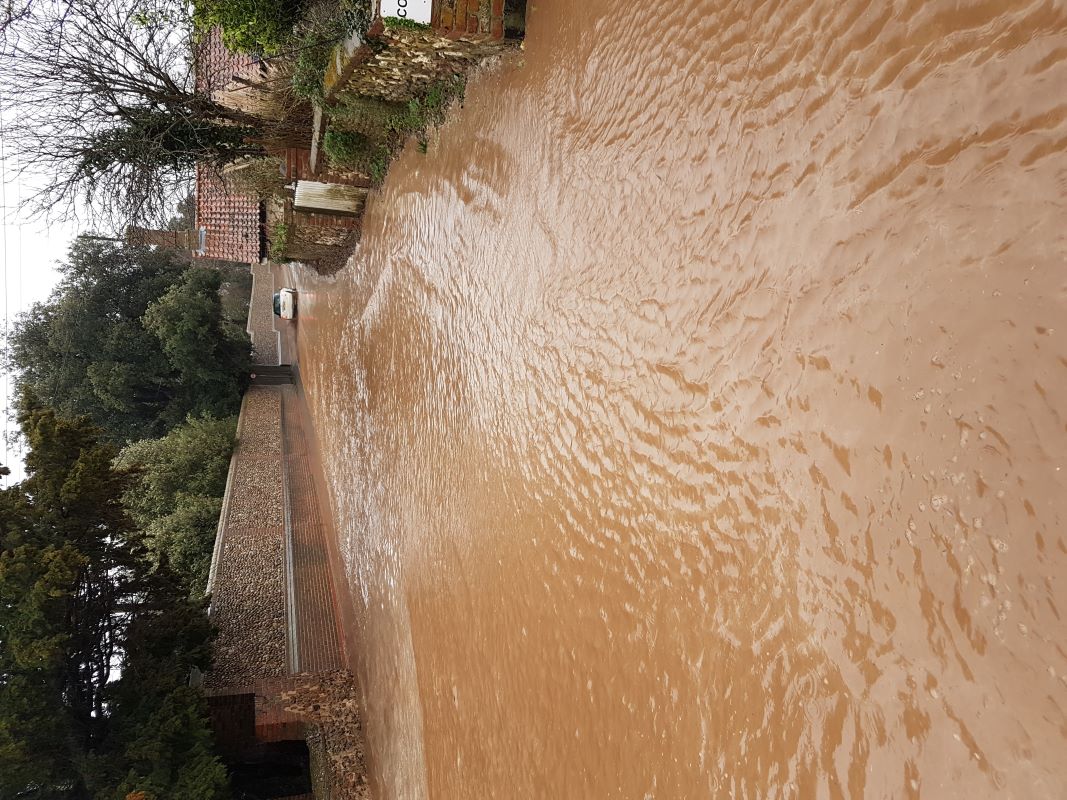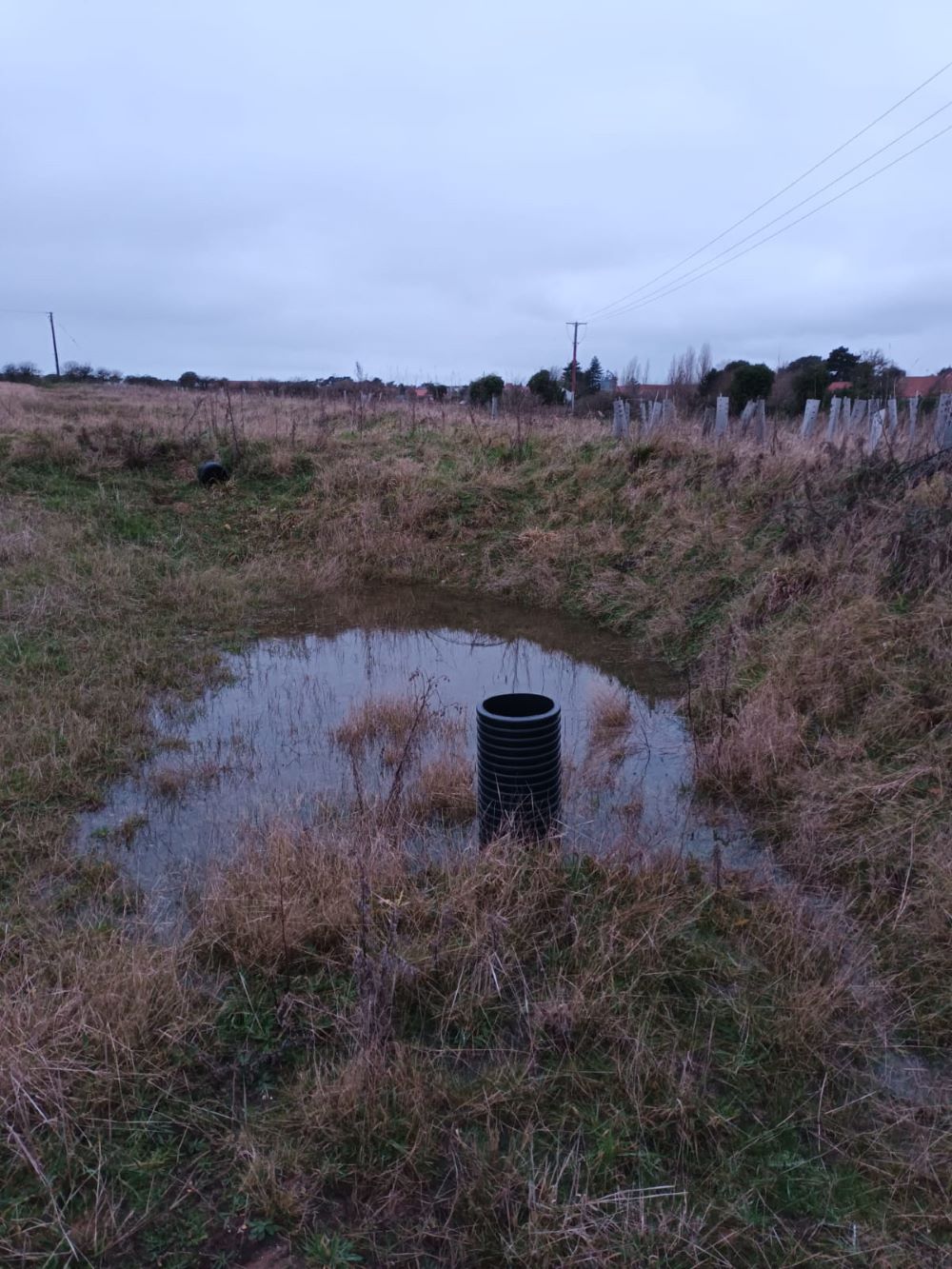
Climate change is increasing the frequency and intensity of extreme rainfall events. This, combined with the long-term effects of historical land management practices, can lead to saturated fields and surface water flooding.
In the winter of 2020, the North Norfolk village of Burnham Deepdale and Deepdale Farm experienced flooding following storms Ciara and Dennis. The A149 road, the village church, and a nearby home were affected.
Through our Water Sensitive Farming (WSF) initiative, we provided tailored farm advice aimed at restoring freshwater environments and nature while improving landscape and farm business resilience. We conducted surface flow and risk mapping, along with on-ground walkover surveys, to identify opportunities for mitigating flood risk while enhancing habitat and water quality.
To manage water flow, trap runoff and create better habitat, we installed field ditches, bunds, buffer strips, an accumulation pond, hedges and a small woodland. We also advised the farm to retain green cover using spring cereal crops or, preferably, fertility-building green manure cover crops to enhance soil structure and reduce erosion.

Following the 8th wettest winter on record (2023/24), Anna, the co-owner of Deepdale Farm, remarked:
“Walking around the whole farm the last few days, the water retention is amazing. There has been hardly any runoff, and I’ve hardly had a speck of mud on my boots. All the NRT interventions and advice 100% work! The village has been so dry in comparison with other villages around.”
These interventions have demonstrated that a natural, multifaceted approach can effectively protect both farmers and communities from flooding. Such measures should be considered within a farm management plan.
This work was made possible through our Water Sensitive Farming initiative, in collaboration with Deepdale Farm.
The implementation of additional Natural Flood Management features and ongoing maintenance received funding support from Aviva, who worked in partnership with WWF-UK from 2021 to 2025 to work with communities in the UK to build healthier and more resilient ecosystems that help reduce the risk of climate-related natural disasters and create wider benefits for people. You can read more about the partnership here.
We also extend our gratitude to the Aviva volunteers who contributed their time and effort to ensure the continued success of this project.
We use Mailchimp as our marketing platform. By clicking subscribe, you acknowledge that your information will be transferred to Mailchimp for processing. Learn more about Mailchimp's privacy practices here.
